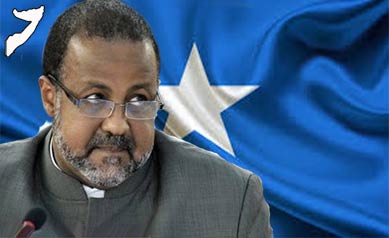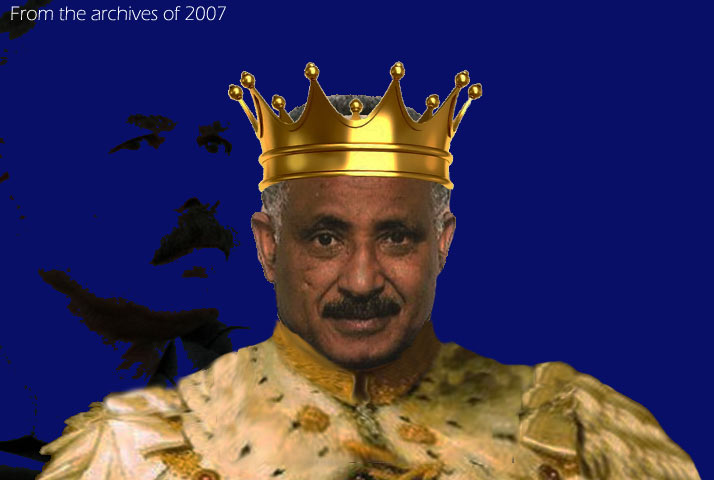Conditions Required for Trust-Building Efforts

The state of our youth today reminds me of a play I came across during my time as a student: Look Back in Anger, by British writer John Osborne, which premiered in London in 1956. To give a general overview of this play, it is considered one of the most prominent works that launched the so-called “Angry Young Men” movement in post-World War II British literature.
The play’s protagonist, Jimmy Porter, is an educated and angry young man from the working class, married to Alison, a woman from the conservative middle class. Class conflict is one of the play’s main themes, as Jimmy is resentful of the class system that marginalizes members of his class. As a result of alienation and social anger, Jimmy reflects the frustration of an entire generation of post-World War II youth.
The fractured romantic relationship between him and his wife, Alison, is fraught with conflict and reflects a loss of connection. Another theme of this play is rebellion against traditional values, and thus the play attacks the values prevalent in British society at the time. The play’s style is realistic, set within a confined space, and relies on long, intense dialogue, and intense emotions that express anger and disappointment with an honesty unprecedented in British theater at the time.
What reminded me of this play in this context is the rebellion of Eritrean youth in the diaspora against the struggles that preceded them, and those who preceded them in age, experience, and history. This rebellion and anger of the youth are expressed through contempt and ridicule for their seniors. Many patriotic and zealous young people I have encountered in these youth movements express themselves in an angry and unbalanced manner, which alienates those with experience. They fear being insulted by the youth, despite all the struggles and sacrifices those seniors have made in their lives, therefore they distance themselves from them for safety. This is one of our setbacks as Eritreans when we see how trust has eroded at all levels: political, social, cultural, religious, and intergenerational. This is truly a disaster. I hope this is just a personal feeling, and I wish that others disagree with me and believe the situation isn’t that bad.
What prompted me to remember the play and cite it here is to highlight that all peoples, when they experience major crises and trauma, lose their balance, stumble in their search for a way out, and engage in many attempts and wrong experiments until they finally find ways and understandings that restore their balance. As Eritreans, I truly feel that we are currently experiencing such a situation.
What prompted me to write this article is the existence of two articles that preceded this one, written by two dear brothers whose writings I have followed before: Dr. Abdul Raziq Karrar and Ustath Beyan Negash, in addition to a seminar presented by Dr. Salah Nour on the “Dialogue for Common Awareness” platform. Both the articles and the seminar revolved around our crises, from the vagueness in defining our problems to the lack of trust between our social components, among other concerns.
Trust is the foundation of any national recovery, achieving any kind of progress, and recognizing shared sacrifices. The shared values nurtured during the 30-year of armed struggle represent a common asset upon which to build trust, if we act wisely. Eritreans must also recognize that divisions of all kinds—religious, regional, and political—are real, historically rooted, and undeniable, but they are not insoluble.
If we attempt to examine the historical sources of divisions that we Eritreans suffer from, we can talk about a colonial legacy based on a “divide and rule” strategy. The Italians, for example, maintained hierarchical and class relations and administered Eritrean society from a top-down perspective. They never attempted to approach or educate Eritreans, even from the perspective of their colonial advantage, which could have prolonged their control over us even after their departure, as it was the case with their British and French counterparts, who tied their colonies to them, as the ultimate aspiration of the colonized becomes to be like their master, dedicating themselves to entering their foremost educational institutions, which remained open in a highly controlled manner, producing educated people who would compete in the service of the former colonizer.
Due to the short duration of their rule in Eritrea, the British were not able to exercise the far-reaching influence found in most of their former colonies, such as Sudan and others. However, during the short period in which they administered Eritrea, they manipulated our ethnic and religious diversity. There are undeniable facts that education took its first leap during the British era, and that political awareness grew. However, the political motives behind this are controversial, so it’s best not to delve into them due to the varying assessments.
Emperor Haile Selassie’s policies were based on dividing Eritreans through religious and regional polarization, and his constant denial of the existence of a distinct Eritrean identity. This is a theme Ethiopians continue to build on to this day, and they revisit it whenever the conflict between them and Eritreans intensifies, even after Eritrea’s independence. The most prominent feature of Emperor Haile Selassie’s era was the geopolitical interventions that occurred during his reign in Eritrea, and the American and Israeli roles in maintaining Ethiopia’s control over Eritrea during this period are well-known.
Therefore, after the desired political change in the country occurs, Eritreans should carefully study the damages they suffered throughout the colonial era, to demand material and moral compensation, and to recover the wealth that was plundered, some of which is known, and most of which is unknown. Most important in this regard is understanding the extent of the injustice and damage they suffered, so that they can have a realistic picture of the injustices they suffered and how these injustices have affected the collective self image of Eritreans.
In this context, there are accusations directed at Eritreans, especially by their southern neighbours. What’s truly unfortunate is, some Eritreans, whether in good faith or for other reasons, have also begun to repeat these accusations: that Eritrea is a creation of the colonizer, as if Eritreans have no history, heritage, or culture of which to be proud. What’s even more shocking and bitter is that we find political convictions that are based on such statements. Even though much of what is said in this context also applies to other colonized peoples, and Eritrea is not exception in this regard, whether positively or negatively.
As for the era of the authoritarian regime in Eritrea, more than three decades of dictatorship deepened the lack of trust among communities, disrupted dialogue between Eritrean groups and individuals, and undermined the solidarity achieved by Eritreans during the liberation war. As for the role played by the current regime in the loss of trust among Eritreans, it has destroyed the trust built in the trenches during the armed struggle. Muslims and Christians, highlanders and lowlanders, men and women, fought together. Our current reality under this regime is characterized by fragmentation, suspicion, and the polarization of Eritreans in the diaspora, in which national identity is not any more an attractive alternative. Here, genuine efforts must be made to remind Eritreans that the cohesion that emerged among them during the armed struggle was not granted to them by anyone, but was built through joint struggle and can be rebuilt anew if we act wisely.
As for the importance of trust, without it, it is impossible to achieve national unity, democracy, and sustainable development. Trust is the antidote to fear, suspicion, and fragmentation that Eritreans suffer from. There is a danger that future generations will inherit many of the traumas and divisions if the recovery process does not begin now. As for the paths to building trust, it begins by recognizing the fact that fragmentation prevails at all levels, and that building trust is difficult in our current reality and can only be achieved through honest dialogue that addresses historical wounds without equivocation. The most important of these paths is creating spaces for sharing stories and experiences, listening attentively, and acknowledging grievances without passing judgments. In this way, we can build a shared narrative, because a shared narrative is crucial to nation-building.
A shared narrative can unify national values and reinforce the common features of our national identity, without which it is impossible to create shared values that unite us. Even if these efforts fail to achieve miracles in uniting us, at the very least, through conscious and purposeful dialogues, we can bridge the gaps between us, building on our shared history of struggle.
A shared narrative also helps redefine Eritrean identity not based on region or religion, but rather on shared human values and our ability to withstand shocks, which are recurring in our history. Every time we think we have made progress on this path — that is, creating a shared narrative — we discover that we have only covered these distances in our imaginations and perceptions, not in reality, and that we are often stuck in the same place.
We need to create platforms that encourage dialogue across our divisions—diaspora versus home, youth versus elders, political organizations versus civil society organizations—and emphasize the importance of fostering dialogue among them to find common ground and view our diversity as a source of strength, not a threat to our shared identity. Among the means to support these efforts is addressing past wrongs in a spirit of reconciliation, not revenge, adopting accountability as a culture and practice, and avoiding, as much as possible, the reckless accusations of collective blame against individuals and groups.
Building trust can only be achieved if there are institutions that foster and nurture it, including the establishment of transparent and participatory civil structures such as local councils and community initiatives. This strengthens the role and position of civil society organizations that repair rifts and divisions when they arise, such as religious, cultural, women’s and youth movements. Eritreans in the diaspora should be bridge builders, not simply echo the deadly divisions we suffer at home and abroad. They should use their platforms to open advanced paths for dialogue that transcend the state of division before it worsens further than it is today.
Concerning practical steps forward:
- The importance of undertaking limited confidence-building initiatives (community dialogues, joint projects, cultural exchanges).
- Encouraging cooperation between religious and regional communities, sometimes even across these communities.
- Education and awareness-raising that highlights the virtues of Eritrean pluralism and the shared sacrifices Eritreans made together to liberate their country.
- Using arts, literature, and written and even oral history telling to remind Eritreans of their shared sacrifices during the struggle.
Conclusion: Building trust is not an easy task or quick solution; it is a task that takes place across generations. Eritreans have proven once that through their solidarity and sacrifices, they are capable of overcoming injustice and oppression, no matter how tyrannical and powerful they and their powerful supporters are. Through dialogue, discipline, and joint action, we can rebuild trust and contribute to building a free and just Eritrea.
N.B. The original text of this article is in Arabic, it’s linked here–courtesy translation.



Awate Forum